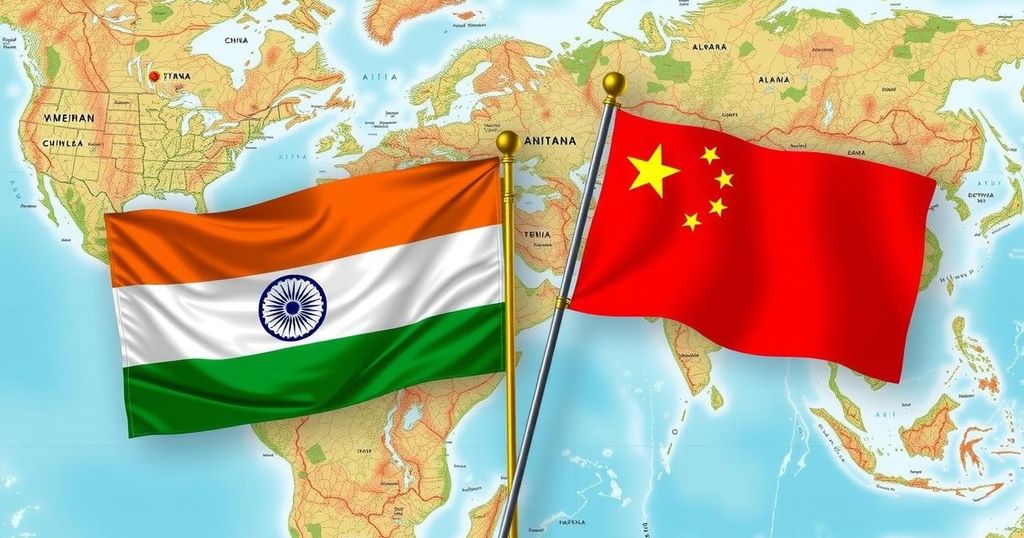India and China Advance Steps for Cross-Border Cooperation
India and China have agreed to work on cross-border cooperation following talks between Special Representatives Ajit Doval and Wang Yi. The discussions focused on resuming the Kailash Mansarovar Yatra and enhancing border trade, reflecting a positive shift after years of military tension since clashes in 2020. Divergences remain, however, as both nations issued separate post-meeting statements.
India has committed to collaborating with China on advancing cross-border cooperation, reflecting an understanding reached during recent talks between Special Representatives. Indian National Security Adviser Ajit Doval and China’s Foreign Minister Wang Yi convened for their first formal discussions in nearly five years on October 21 in Beijing, focusing on cross-border initiatives such as the Kailash Mansarovar Yatra and border trade expansion.
In a media briefing, the spokesperson for India’s Ministry of External Affairs, Randhir Jaiswal, emphasized the positive trajectory of these discussions, indicating they would facilitate further exchanges moving forward. The conversation was noted as significant since the Kailash Mansarovar Yatra has been suspended since 2020 due to heightened military tensions along the Line of Actual Control (LAC), including a deadly clash at Galwan Valley.
Following an agreement reached in October, the two nations have undertaken the disengagement of forces stationed at critical tension points, facilitating a backdrop for ongoing negotiations. Notably, Indian Prime Minister Narendra Modi and Chinese President Xi Jinping further endorsed efforts on border issues during their meeting on October 23 at a BRICS summit.
Despite this, discrepancies were noted in the aftermath of the talks; while China’s foreign ministry referenced a “six-point consensus,” India’s statements refrained from labeling the discussions as such, suggesting that divergence remains in how these negotiations are perceived. Both nations ultimately issued separate press releases after the two-hour meeting, underscoring the complexities involved.
Overall, the engagement seeks to foster stability and cooperation in a historically tense relationship, with ongoing dialogue indicating a purposeful path towards resolution.
This article addresses a recent diplomatic development between India and China, focusing on their agreement to enhance cross-border cooperation. The context arises from long-standing tensions that escalated in 2020 with military standoffs along the Line of Actual Control. Here, the roles of Special Representatives Dhoval and Wang Yi are crucial as they navigate complex bilateral relations, with the aim to resume cultural exchanges and stabilize trade amidst these tensions.
In conclusion, the formal talks between India’s Ajit Doval and China’s Wang Yi signify a potential thawing of relations, marking a pivotal step towards resuming friendly exchanges impacted by previous military confrontations. The absence of a consensus in their respective statements highlights ongoing challenges, yet both parties express a commitment to continued dialogue and cooperation on pressing issues like the Kailash Mansarovar Yatra and border trade.
Original Source: www.hindustantimes.com




Post Comment